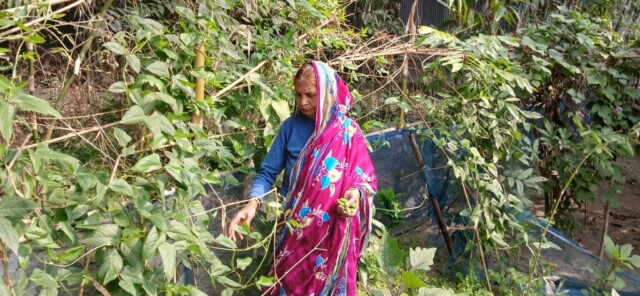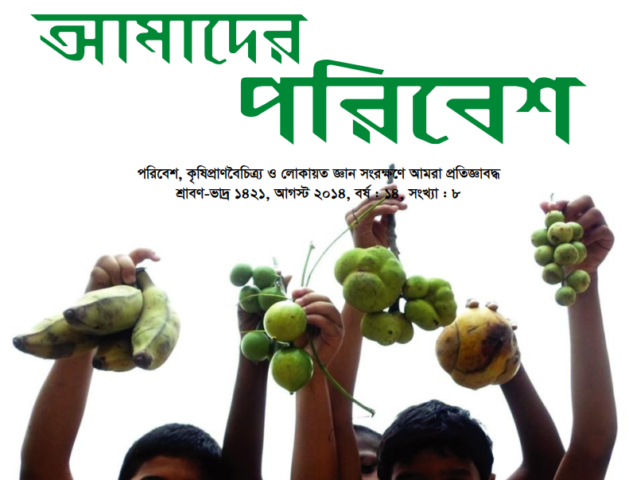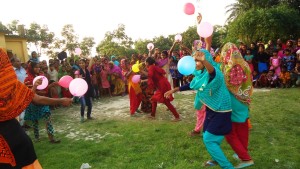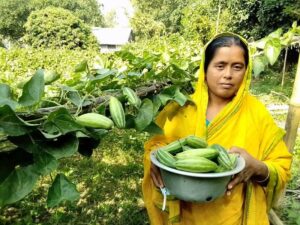By Shimul Biswas from Manikgonj
At 80 years old, Hameda Begum from Uttar Jamsha village in Singair upazila remains deeply engaged in farming. Despite her age and having four well-established sons, she does not sit idle. She has transformed 10 percent of her family’s cultivated land into a thriving nutrition garden filled with a diverse range of vegetables and fruits. Providing her family with safe and nutritious food brings her immense satisfaction.
In an exclusive interview with BARCIK, Hameda Begum shared that her mother introduced her to agricultural work from a young age, teaching her how to utilize unused spaces like courtyards and raised beds (palan) to meet the family’s nutritional needs. This lifelong habit and experience have enabled her to cultivate a variety of crops year-round. Today, her 10-year-old granddaughter Jinia and her daughter-in-law Jasmine Akhter actively assist her in maintaining the garden.

Hameda Begum’s garden boasts a wide array of vegetables, including cauliflower, beans, gourd, brinjal, yardlong beans, chili, spinach, pumpkin, swede, okra, potato, cabbage, frog potato, green peas, and red cabbage. Additionally, she grows fruit trees such as mango, jackfruit, coconut, betel nut, olive, jujube, wood apple, sugar apple, wax apple, guava, and lemon. She believes that these homegrown vegetables and fruits do not only fulfill her family’s nutritional needs but also generate additional income and enhance hospitality.
Since engaging with BARCIK in 2023, her farming practices have evolved significantly. Previously, she relied on market-bought seeds and fertilizers supplied by her sons. Now, she collects and conserves her own seeds, produces organic fertilizers from cow dung, and adopts environment friendly pest control measures. She uses a combination of cow dung, cow urine, mahogany fruit extract, neem leaves, and sex pheromone traps to protect her crops naturally. Furthermore, she generously shares saved seeds and harvested produce with relatives and neighbors.
After meeting her family’s needs, the surplus produce from Hameda Begum’s garden is sold in the local market. The earnings provide financial independence, allowing her to spend on personal needs and support her grandchildren. Reflecting on this, she said, “We eat what we grow ourselves, and we sell the rest. This year, I have earned BDT 20,000 from selling vegetables. My sons give me the money, and I use it as I wish to buy medicine and meet my grandchildren’s needs.”
In today’s market-driven agricultural system, traditional farming practices are being overshadowed by excessive use of chemical fertilizers and pesticides, posing significant challenges to food security. Hameda Begum believes that rural women must step forward to counter these challenges. By managing family nutrition gardens, women can play a crucial role in ensuring food security, promoting sustainable agriculture, and preserving traditional farming wisdom.




